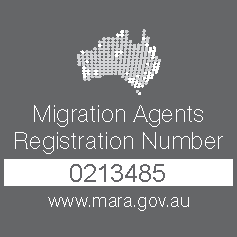Like many other industries in Australia, the hospitality industry is suffering from a nationwide skills shortage. The closure of international borders in 2020 saw many international students and working holiday visa holders leave Australia – a cohort that makes up a significant portion of the hospitality workforce.
Foreign staff have contributed to the hospitality industry for decades across many roles including wait and bar staff, butchers, chefs, and fishmongers to name a few. Coronavirus lockdowns forced many of these people to return to their home countries.
While in late 2021 residents of major capital cities were emerging from Covid-19 lockdowns eager to frequent their favourite restaurants and bars, many of these businesses were struggling to keep their doors open due to a lack of staff. Closed international borders, the halt in skilled migration and strict isolation rules all had an impact on an industry that already suffered greatly during the pandemic.
Now that international borders are open it would stand to reason that overseas workers would be eager to return to the Australian hospitality industry but they’re not. Why? Covid scared people off. Hospitality was once considered a safe and therefore attractive industry to work in, but Covid changed that and now there is such uncertainty within the industry that both local and international workers are thinking twice before taking up roles in hospitality.
Many chefs including celebrity chef Neil Perry say that current labour shortages are the worst they have seen in the industry. Many restaurants have had to limit the number of bookings available to ensure they have adequate staff numbers to serve customers.
As an industry that relies on foreign workers to survive much is being done by businesses to entice talent from overseas.
Taking matters into their own hands
As an incentive, some companies have offered to pay for flights to Australia for overseas workers and assist with visas and temporary accommodation – even offering food and beverage vouchers.
Some restaurants have offered staff a four-day working week and a change of hours to offer more flexibility in the hope that it provides an attractive proposition for potential staff.
Other businesses have tried to navigate the shortages by altering the work week, with one Sydney-based business only operating five days of the week rather than seven. Not an ideal situation given that costs remain the same regardless of the number of days a business operates but it’s a solution that accommodates the labour shortage.
Are there long-term solutions that could help the hospitality industry?
Data from Deliveroo’s HospoVitality Report revealed that 85% of 200 restaurant owners surveyed supported a specific visa for hospitality workers. This was an initiative that historically garnered more support from metro-based businesses who were more reliant on migrant workers and backpackers. It seems that with recent labour shortages also hitting businesses outside of the metropolitan area the support for a visa of this type has increased.
Whether it’s hospitality or any other industry in Australia, the narrative remains the same – more workers are needed. Hopefully open international borders and skilled migration can help alleviate the current stresses these industries face.
Visa Solutions Australia is happy to assist your hospitality business with visas for your staff. To speak to a registered migration agent, contact Visa Solutions on 1800 828 008 or send us an email.







